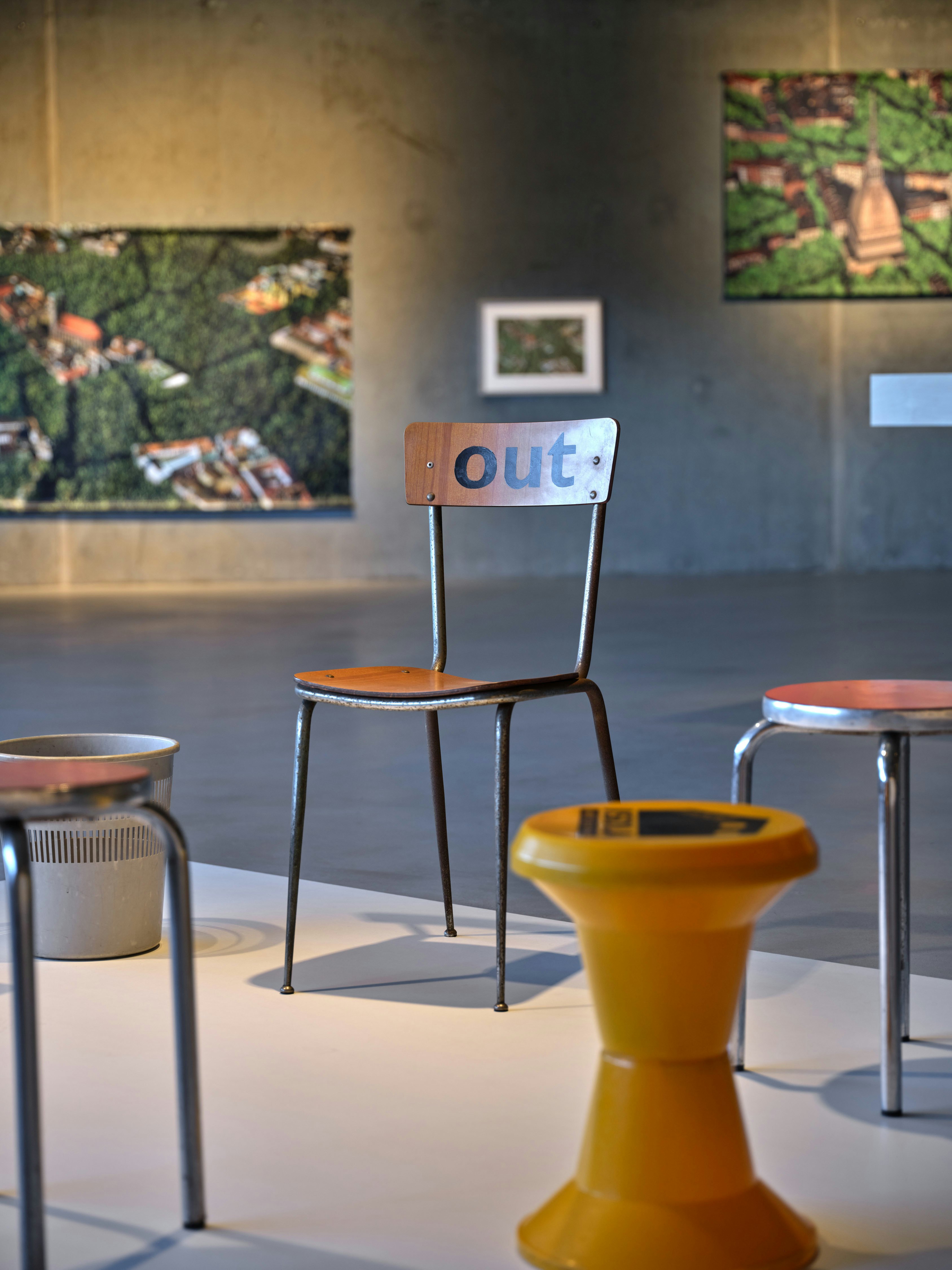Parabel vom Wasserbecken is the title of an unfinished book project by the Luxembourg artist Bert Theis (1952 - 2016) dating from 1986, recently rediscovered in his archives and transformed into a publishing project.
This series of collages is emblematic of the artist's work in the 1980s. Based on the text The Parable of the Water Tank by the American author Edward Bellamy (1816-1886), this series is a satire on capitalism taken from his utopian novel Equality (1897), which was a great success in militant socialist and anarchist circles at the time. Presented in an archive binder and organized into eleven chapters, the collages enter into dialogue with extracts from the text.
In addition, the exhibition presents all the collages produced by Bert Theis over the decades, bringing to light many previously unpublished materials. But above all, the exhibition is based on the question: what is a collage, really? What does it mean, also historically, to work with collage? Isn't it a space of impurity and contamination? Isn't it really a matter of pasting press clippings from outside the studio, from the street, from outside the places reserved for art? Can't we imagine a three-dimensional collage, one that extends into existential space?
This is how we should view Bert Theis's famous Plateformes and his Isola Art Center project in Milan: a great social collage. For Bert Theis, collage is not simply a formal technique, but rather a conceptual paradigm.
In collaboration with the Bert Theis Archive.
Text: Marco Scotini
Additional Info
- Type Past exhibition
- Artist(s) Bert Theis
- Curator(s) Marco Scotini, guest curator and Charlotte Masse, curator
Biography
Bert Theis (1952-2016)
Lived and worked in Luxembourg and Milan. Bert Theis belonged to that generation of artists who emerged at the beginning of the 90's, who approached public space in both an unmonumental and emergent zone with possibilities. He anchored his works to social contexts and relational modalities, without, however, denouncing them as works of art. The works of Bert Theis are always conceived to be put directly into the outdoor spaces of a city, even if the Luxembourg artist has become famous for his participation in many important international expositions, from the Venice Biennale in 1995, 'Skulptur. Projekte in Münster in 1997', Manifesta 2 in 1998, to Gwangju Biennale in 2002 (South Korea). The assumption of a hyperactive society driven by excessive consumption informs the common background of Bert Theis' works. His works attempt to get people to turn inward, towards the spaces, places of rest and platforms for relaxation, capable of temporarily forming small communities of people with explicit reference to idyllic islands, to the utopia of unspoiled land. In Theis' work, the opening towards this vital life assumes a rigorous intellectual utopian condition, and at the same time, that which is more extraordinary than daily existence, and subtly, an irony in the experience.





